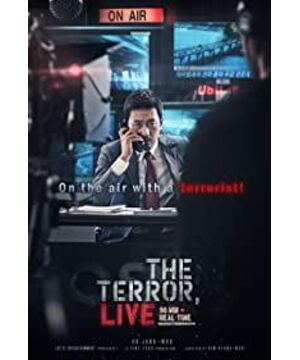The theme of this "President and the ruling party do not admit their mistakes, forcing the people to launch terrorist attacks to speak out" is really too angry with the youth and the second, but it can make the audience feel crooked and vent their disgust for politicians, this is not 100% Is it suitable for Taiwan now?
But how long will it take for the Taiwanese film industry to be like South Korea, who dares to shoot such an angry youth and anti-bone theme?
The film culture gap between Taiwan and Korea...
The "Angry Youth Index" of this film is so high that it is high enough to admire Koreans.
Why? Because it's a horrible movie. The evil habit of scolding the ruling party for not apologizing has been made into a movie, and the idea of that kind of angry youth will be played in front of millions of audiences.
You could say stupid.
But it can also be known that the artistic atmosphere of this country is enough for this kind of slanted theme to surface, and it is supported by a certain customer base.
The film is about two hours long, and the narrative time in the film is also completely synchronized to two hours, in the same way as "24 Hours of Counter-Terrorism Mission". A "fake live" movie, this one really captures the feeling of "urgency": the protagonist is in a hurry, the supporting roles are in a hurry, and the murderer is in a hurry later, so the audience is also in a hurry.
No hurries? They are all racing against time. How fast is the time? From the broadcast of the TV station where every second counts, as well as the phone timing that pops up every now and then, to create a high-pressure viewing experience for the whole film. .
Because of the "urgent" shot, this film looks good.
The subject matter of the terrorist attack forcing the government to apologize is sensational, both in reality and fiction. So innately, the movie audience is actually like the TV audience in the film, who is caught in the mood of gossip to watch this time-synchronized movie story. As for the film technique itself, in the fully synchronized "fake live", the shots are staggered in the tense atmosphere steaming under the media room, double live. South Korea was hit by a terrorist attack for the first time, and the mastermind chose a single radio station to make a statement. In the media industry that is fighting against time, how big of a topic will this be, and the profits that come with it (according to the film, it is worth more than 2.1 billion won)? So the people on the TV station went crazy and tried their best to keep the murderer stuck in their speeches.
Because of "urgency", the calmness of human nature has been completely diluted, and what remains is the instinctive words and naked greed of the media people. When more and more people died later in the story, compassion ran out, but because of "urgency", it was impossible to decide whether to calmly negotiate or give up. Human nature does not necessarily have only food, sex and bad things, but also benevolence, righteousness and goodness. However, under the impatience of fighting every minute and every second, evil becomes honest, and good deeds end in pity.
Breathless, anxious, but eager to know the truth—"urgent" is the winning formula for suspense movies, and this film has a gold-level performance.
Some people may see that there are a lot of moral propositions that can be explored in "Terrorist Attack Live", which contradict each other in the film. For example: the TV station uses the camera to kill people, the legitimacy of the terrorist attack, whether the government has a position to apologize, and even the inner entanglement of the protagonist... These can all be filmed, but they are not filmed. The fully synchronised narrative time makes these issues directly into a fleeting moment, and there is no time to ponder.
This is also what I find interesting. What we should be exploring rationally, but when we don't have time to explore, why do we "hurriedly" choose the answer right now? Instinct, or really thought? For example, when the anchor knew that his ex-wife was among the hostages, he suddenly made a nonsense speech that was different from the previous position during the broadcast, hoping that his brother would release the hostages first. The anchor has been talking about his dissatisfaction with his ex-wife in front of other colleagues, but there is such a derailment in this live. There are also live derailments, big and small, in the film, which are worth thinking about.
In addition to the high level of shooting ability, the ideology behind the story of the film is also extremely clear.
In the process of live, the police chief who can only dodge, the president who has been late to show up... The people representing the government have all accelerated the terrorist attack murderer's desire to attack. The anchor who is anxious for ratings has instead become the highest moral bottom line spokesman in South Korea today, instead of the whole people and the mouthpiece of the murderer not to kill. How much the arrogance of the government should be expressed in this sharp plot, probably the audience is self-evident.
But there is one place that I feel is full of deflated feet, which is the bomb on the anchor's headset.
Too far-fetched...? It's purely for the writer of the story to draw a convenient explanation of "Let the protagonist escape without thinking about stopping the broadcast", interspersed with bridges. Movie audiences are very smart. Such a deliberate bomb stalk is as abrupt as the transfer student characters who suddenly ran out of juvenile comics. You can instantly know that the screenwriter is lazy here.
If you can lay out a reasonable emotional development and let the anchor continue to stay on the broadcast station, it will obviously make the film better.
A nation is civilized when it allows the coexistence of the arts of praise and ridicule at the same time.
The Western Han Dynasty is one of the pronouns of Chinese civilization, and its literary environment coexists with the grand style of extolling virtue and the objection style of satirizing the monarch;
the present-day American world of Hollywood also coexists with many people who promote American imperialism and reflect on their own arrogance. A clear artist stance.
I am not familiar with the civilization of South Korea, but behind the release of the movie "Terrorist Attack Live", I can smell the breadth of this civilization.
And what about Taiwan?
How much civilization can Taiwan's film industry culture have now and in the future?
View more about The Terror Live reviews











